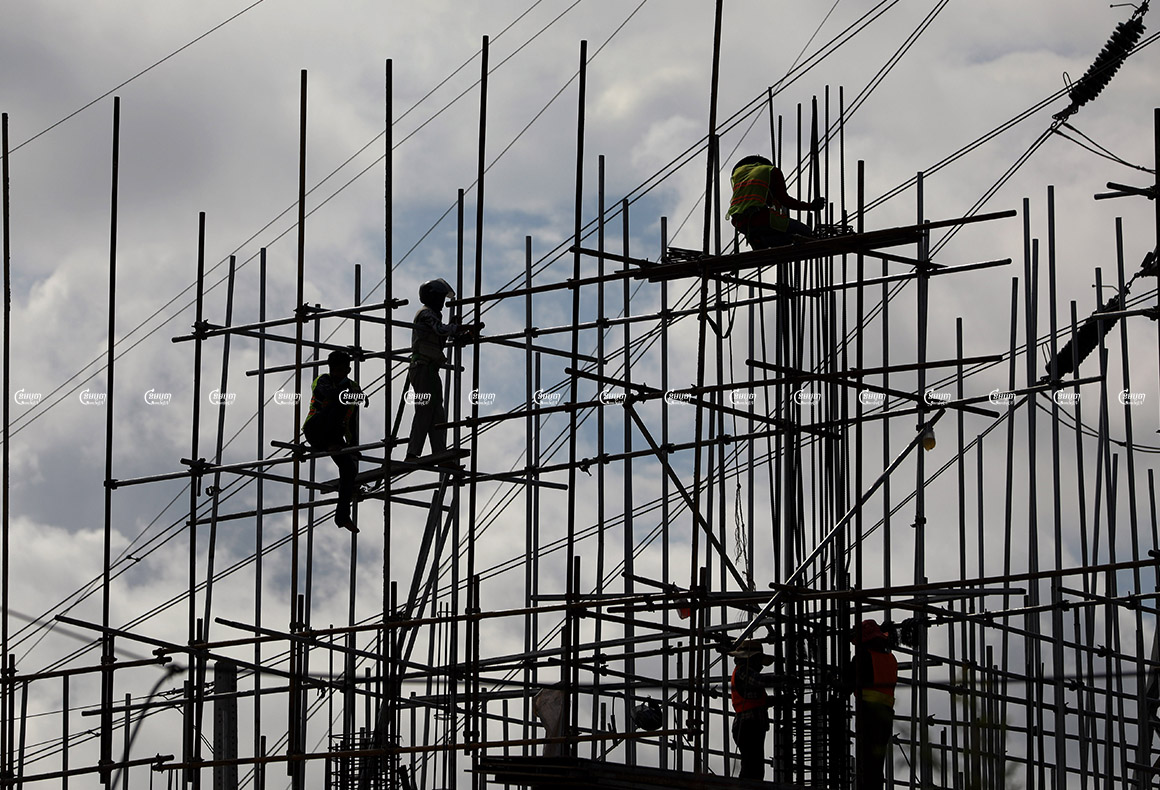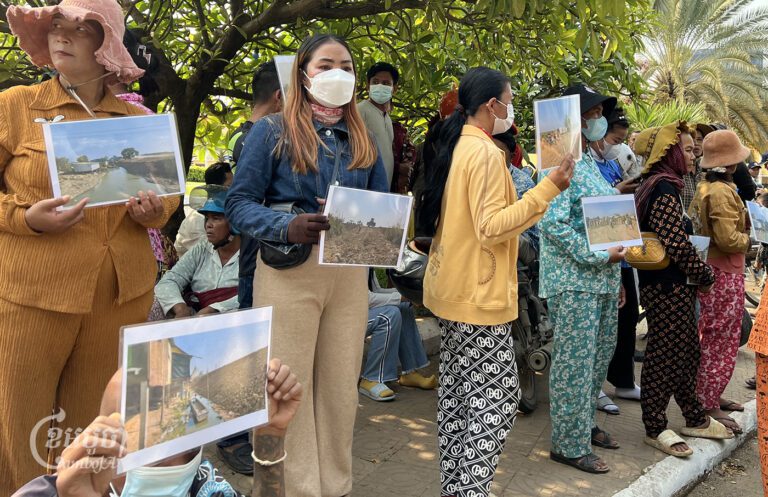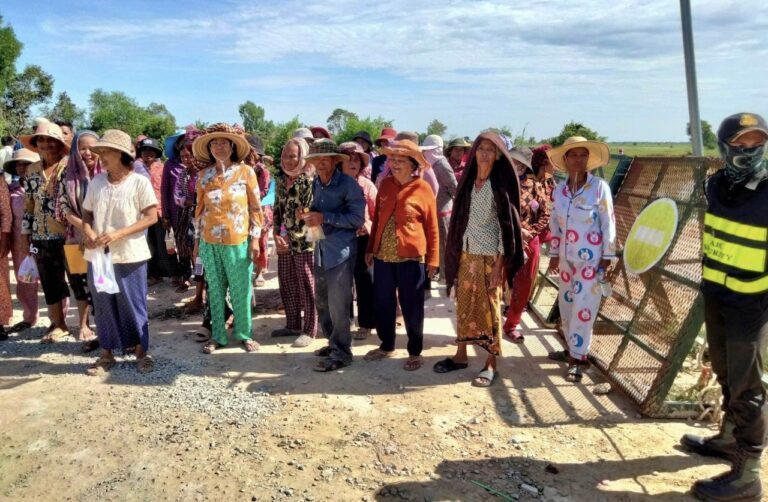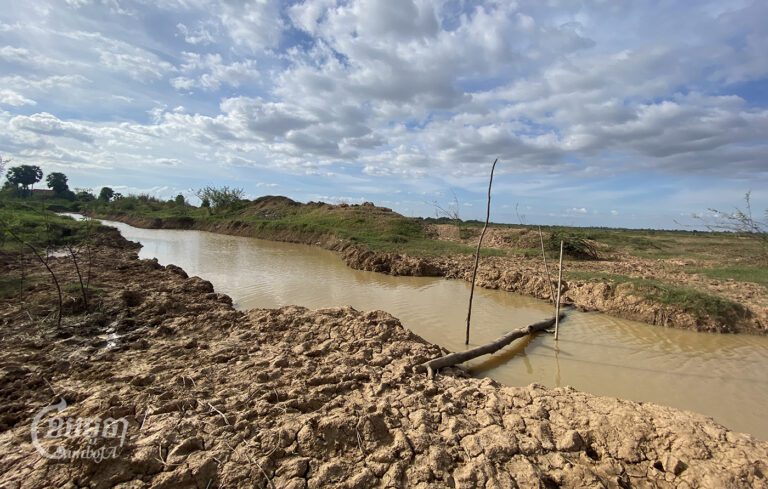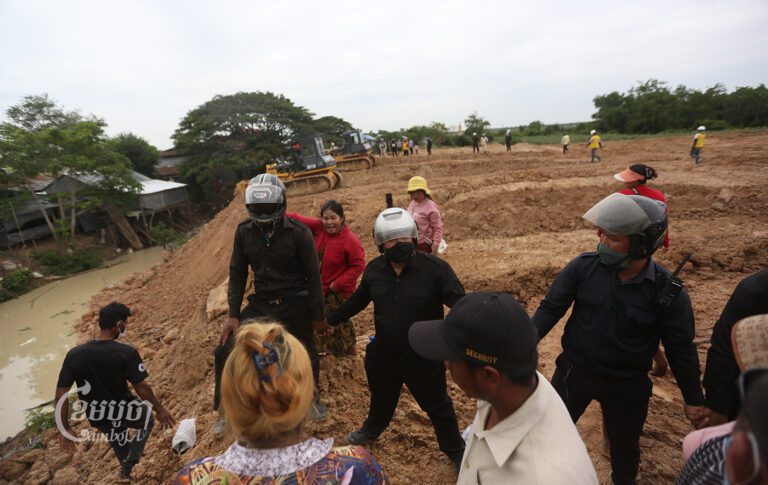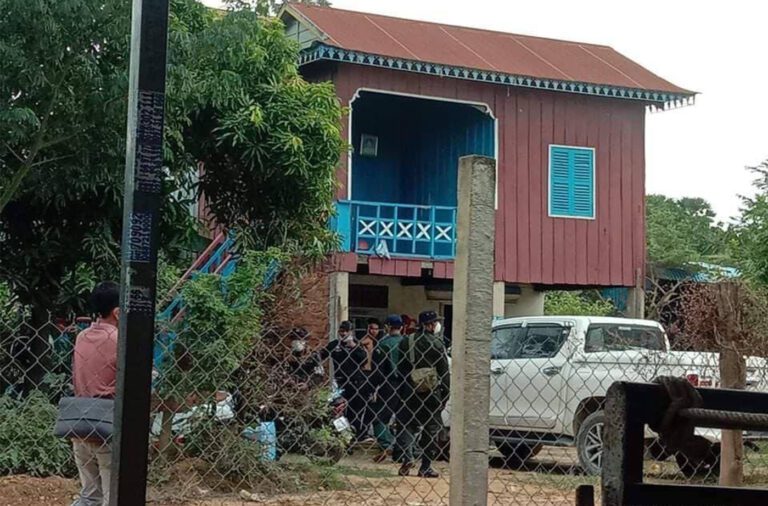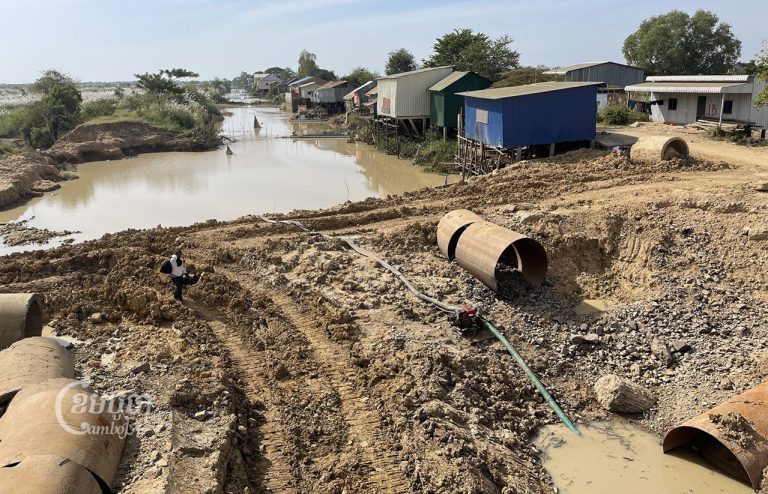Australia and Cambodia signed an agreement paving the way for better safety standards in the notoriously underregulated construction industry, the Australian Embassy announced Thursday.
“The rapid transformation of Cambodia’s cities has created new challenges,” Australian Ambassador Pablo Kang said in a statement released by the embassy. “The major building collapses in recent years were tragedies. We saw it as imperative for Australia to respond quickly and effectively to the Cambodian Government’s request for support to improve the safety of Cambodia’s construction workers, their families and the public including for COVID-19 related risks.”
On Thursday, Kang and Chhann Saphan, Permanent Secretary of State at the Ministry of Land Management, Urban Planning and Construction, signed the “Subsidiary Arrangement to formalize cooperation on enhancing construction safety in Cambodia.”
The embassy said it was helping the ministry prepare Cambodia’s first legally mandated construction workplace health and safety guidelines in order to reduce the risks of deaths and accidents on Cambodian construction sites. The guidelines are set to be completed by the end of the year. Australia is also raising private sector awareness of their responsibilities to promote safe worksites, the statement noted.
Ahead of the signing ceremony, Kang met with Chea Sophara, Deputy Prime Minister and Minister of Land Management to discuss Australia’s ongoing technical support in the construction sector and Australia-Cambodia bilateral relations more broadly.
“Since Cambodia passed its landmark Construction Law in 2019, we have been working ceaselessly on implementation. Enforceable safety standards for work sites are vital and we appreciate Australia’s support for us to move ahead with this quickly,” Sophara said in the media release.
In 2015, Australia began a six-year, $36 million ‘Investing in Infrastructure’ program. An Australia Embassy spokesperson told CamboJA by email that Australia has also been providing technical support in the construction sector in Cambodia for around two years.
“To support the Ministry of Land Management, Urban Planning and Construction (MLMUPC) to improve safety in the sector, we are assisting MLMUPC to develop workplace health and safety guidelines which should be completed by the end of this year”, said spokesperson.
“These guidelines will provide guidance to industry on how to put in place robust safety standards. We will also continue work into 2021 with MLMUPC to undertake outreach to the construction sector as well as training for MLMUPC on how to assess compliance with the new safety rules.”
It wasn’t until late 2019 that Cambodia implemented its first construction regulation, the Law on Construction. But in spite of the legislation Cambodia’s construction sector remains largely unregulated, staffed by workers who are paid poorly and face dangerous working conditions. Two building collapses in the space of six months in 2019 and 2020 that left 64 people dead underscored the lack of safety standards.
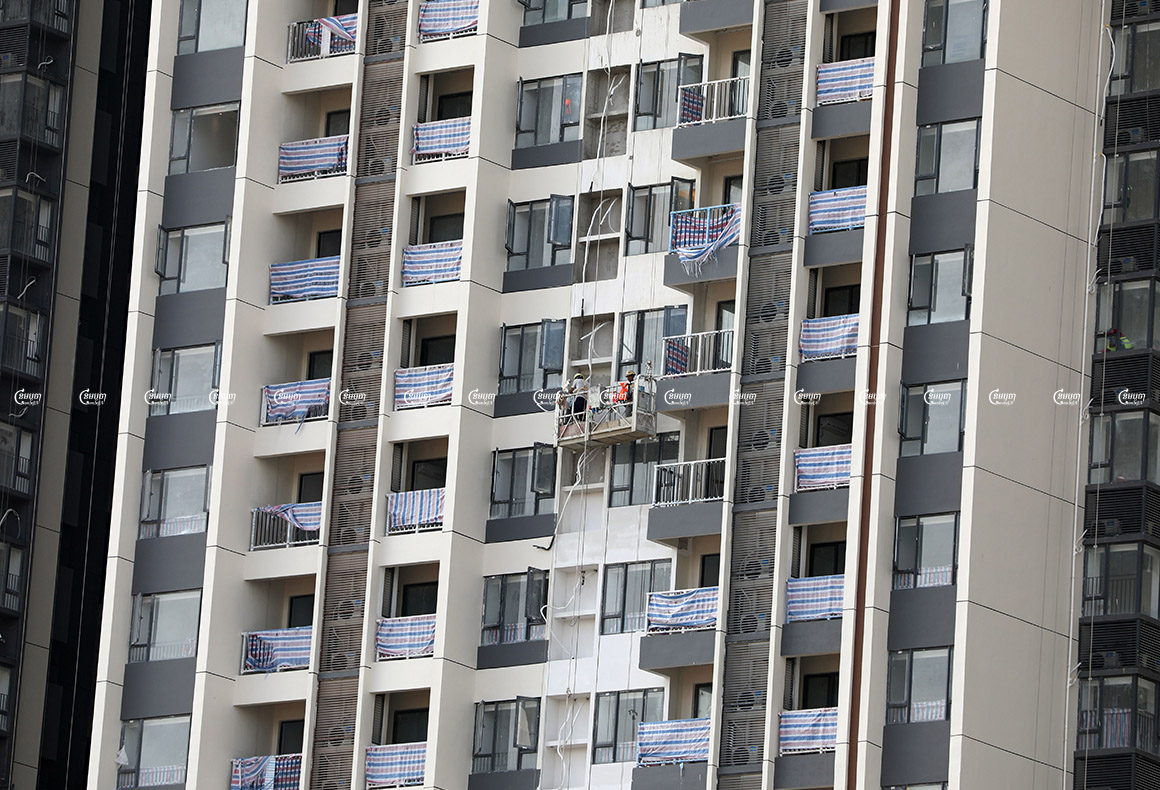
Sok Kin, president of Building and Wood Workers Trade Union Federation of Cambodia (BWTUC) said that the health and safety guidelines would be an important step for worker protection.
“I think that the danger rate for construction workers is high in Cambodia,” said Kin.
He said that he congratulated the cooperation between Cambodia and Australia regarding the regulations, but said enforcement would be key.
“However, I am still concerned over implementation because in the previous time, we saw that Cambodia had many laws on the construction sector and other relevant laws but pushing the private sector to implement them seemed not effective,” Kin said. “I think that this is a big problem, if we had laws already but we do not implement them strictly.”
“I request all relevant officials to add additional workplace inspectors and force employers to respect the laws,” Kin added.
Seng Loth, spokesman of the Ministry of Land Management, said that Australia helped with consulting to arrange the guidelines and that the ministry welcomes the assistance.
“We welcome this support to cooperate to arrange the guidelines related with safety for all construction sites,” Loth said. “It is necessary and we thank Australia.”
He said that long before Australia’s help, the ministry released laws and guidelines regarding safety at construction sites and also broadcast them at public and private construction sites. But the guidelines required updates based on the changing social situation and economy.
While it is impossible to have zero risks on site, he noted, the ministry has worked hard to strengthen safety regulations.
“Even if the risk does not arrive at zero the risk must be the lowest,” Loth said.
“I appeal to all [development] companies and the professionals in the construction sectors to pay close attention to the guidelines and as well as the technical legal standards at all construction sites,” he said.
Touch Samnang, deputy general director of Oversea Cambodia Investment Corporation (OCIC)—one of Cambodia’s largest developers —said he welcomed the agreement.
“Based on what I have seen, the safety standard is different from one place to another. I would say it largely depends on each project owner. But if the ministry implements these new health and safety guidelines and puts it as a must requirement, those project owners will pay more attention to their construction workplace safety,” said Samnang.
Roeun Chan, a 50-year-old construction worker, told CamboJA that while he has been provided with adequate safety equipment, he was glad to hear of the new regulations. “ I am happy that they start thinking of us so that we, as the construction workers, know whom we could reach out for help when we are in trouble,” said Chan.


